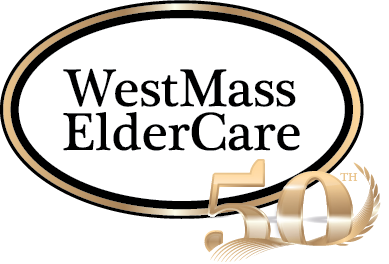 How well you and your doctor talk with each other is one of the most important parts of getting good health care. But talking with your doctor isn’t always easy. It takes time and effort from both of you. Especially as a senior or an individual with chronic conditions or disabilities, it’s crucial to express your concerns clearly and ensure your doctor understands your unique needs. To help you navigate these conversations, we’ve compiled some valuable tips to empower you when discussing the issues that are bothering you. By following these guidelines, you can enhance your doctor-patient relationship, improve your healthcare experience, and achieve the best outcomes for your well-being.
How well you and your doctor talk with each other is one of the most important parts of getting good health care. But talking with your doctor isn’t always easy. It takes time and effort from both of you. Especially as a senior or an individual with chronic conditions or disabilities, it’s crucial to express your concerns clearly and ensure your doctor understands your unique needs. To help you navigate these conversations, we’ve compiled some valuable tips to empower you when discussing the issues that are bothering you. By following these guidelines, you can enhance your doctor-patient relationship, improve your healthcare experience, and achieve the best outcomes for your well-being.
Find a provider you can talk to
Finding a primary care provider, whether a doctor, nurse practitioner, or physician’s assistant, who you feel comfortable talking to is the first step in establishing good communication and ensuring the best possible healthcare. Your primary practitioner is the healthcare professional who gets to know you and understands your normal health patterns. Building a long-term relationship with your primary doctor allows them to make informed medical decisions that meet your goals and fit with your daily habits. Moreover, your primary practitioner can effectively coordinate your care by keeping in touch with other medical specialists and healthcare providers you may need to consult. If you currently do not have a primary doctor or do not feel at ease with the one you see, it’s important to take steps to find a new doctor who meets your needs and makes you feel comfortable.
Prepare ahead of time and decide on important questions
Prioritize your concerns by selecting three or four questions or issues that are most important to discuss with your doctor. At the beginning of your appointment, clearly communicate these questions or concerns, allowing you to address each one systematically. If time permits, you can then move on to other inquiries or topics. By focusing on your top priorities, you ensure that the most critical issues are thoroughly addressed during your visit.
Stay concise and on point
While your doctor may be open to lengthy discussions, it’s important to remember that each patient is given a limited amount of time. To make the most of your appointment, aim to provide concise information. For example, offer a brief description of your symptoms, including when they started, their frequency, and any changes in their intensity. By expressing your concerns briefly and in detail, you allow your doctor to efficiently assess your needs, leading to a more focused and productive discussion.
Make a list of medications, dosages, and how they are taken
Keep a detailed list of your medications, including the dosage and how they are taken. Take this list with you to every doctor’s visit, especially when visiting a new doctor or a specialist for a new medication. By having an up-to-date medication list, you ensure that all doctors are aware of the medications you are currently taking. This information helps them make informed decisions about prescribing or adjusting medications and therapies.
If you aren’t able to make a list, bring your medication bottles to your appointment. Having them on hand will make it easier to review any changes that have happened since your last visit.
It’s also helpful to bring a pad of paper and a pen to jot down any changes to medications or instructions on when or how to take them differently. This way, you can note down important information during your appointment and refer back to it later.
Be honest
Honesty is vital when communicating with your doctor. It’s important to share accurate information about your personal habits and lifestyle so that your doctor can provide you with the best care possible. If you feel uncomfortable discussing certain topics, such as personal issues or recreational drug use, remember that your doctor is bound by confidentiality. Your doctor cannot share any information you disclose during your appointment with anyone else without your written permission. Creating a trusting environment based on open and honest communication allows your doctor to fully understand your situation and provide appropriate guidance and support.
Share your medical history
It’s essential to inform your doctor about any significant events or changes in your life since your last visit. Be sure to promptly mention if you have received treatment in the emergency room or urgent care, consulted a specialist, or experienced any illnesses. Additionally, discuss any noticeable changes in your appetite, weight, sleep patterns, energy levels, or your ability to manage everyday activities such as bathing or oral hygiene. It’s important to update your doctor about any recent changes to your medications and any effects you’ve noticed as a result of taking them. By sharing this information, you provide your doctor with a comprehensive picture of your health, enabling them to make informed decisions and adjustments to your healthcare plan.
Be sure you can see and hear as well as possible
Many older adults use glasses or need aids for hearing. Remember to take your eyeglasses to the doctor’s visit. If you have a hearing aid, make sure that it is working well and wear it. Let the doctor and staff know if you have a hard time seeing or hearing. Ask them to repeat or talk slowly so that you can understand.
Ask questions and seek clarification
Don’t hesitate to ask questions if something is unclear or if you need further information. Doctors are there to help you understand your health conditions, treatment options, and any recommended lifestyle modifications. It’s essential to have a clear understanding of your healthcare plan and actively participate in decision-making.
Bring a trusted advocate
Consider bringing a family member or friend to your appointments as an advocate. They can help take notes, ask questions, and provide support during discussions. Having an additional set of ears can be invaluable, especially if you aren’t feeling well or find it challenging to hear or retain or process information.
Request accessible accommodations
If you have specific accessibility needs, inform your doctor’s office in advance. They should be able to provide accommodations such as wheelchair accessibility, sign language interpreters, or longer appointment times to ensure adequate communication and understanding.
You may also want to see if telemedicine is available via video or phone call. More doctors’ offices are offering more ways to reach them these days, and it may be easier and more comfortable for you to discuss your issues over the phone or on a video call via the computer.
Discuss alternative communication methods
If you have difficulty speaking or hearing, explore alternative communication methods that can facilitate your conversation with the doctor. This could include using written notes, communication boards, or assistive technologies. Let your doctor know about your preferred method to ensure effective communication.
Take notes and request written instructions
During your appointment, take notes or request written instructions summarizing the important points discussed. This way, you can refer back to the information later and ensure you remember any recommendations or next steps accurately.
Follow-up and share feedback
After your appointment, take the time to reflect on your experience. If necessary, follow up with your doctor to clarify any uncertainties or address additional concerns. Providing feedback about your communication needs and preferences can help improve future interactions and ensure a more patient-centered approach.
Conclusion
Good communication is essential for a good relationship with your doctor. Using these tips when talking about your concerns can help you feel more confident, improve your healthcare, and work together with your doctor to get the best results for your health. Remember, your opinions and concerns are important, and by speaking up, you play an active part in your healthcare journey.

 How well you and your doctor talk with each other is one of the most important parts of getting good health care. But talking with your doctor isn’t always easy. It takes time and effort from both of you. Especially as a senior or an individual with chronic conditions or disabilities, it’s crucial to express your concerns clearly and ensure your doctor understands your unique needs. To help you navigate these conversations, we’ve compiled some valuable tips to empower you when discussing the issues that are bothering you. By following these guidelines, you can enhance your doctor-patient relationship, improve your healthcare experience, and achieve the best outcomes for your well-being.
How well you and your doctor talk with each other is one of the most important parts of getting good health care. But talking with your doctor isn’t always easy. It takes time and effort from both of you. Especially as a senior or an individual with chronic conditions or disabilities, it’s crucial to express your concerns clearly and ensure your doctor understands your unique needs. To help you navigate these conversations, we’ve compiled some valuable tips to empower you when discussing the issues that are bothering you. By following these guidelines, you can enhance your doctor-patient relationship, improve your healthcare experience, and achieve the best outcomes for your well-being.